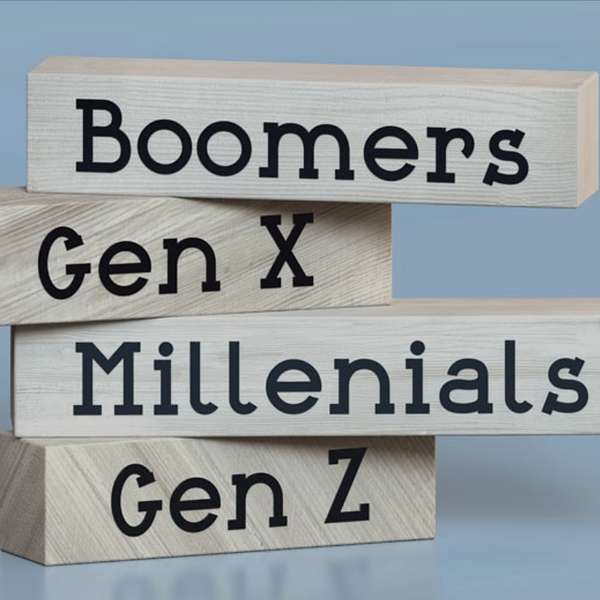
Excel Still More
The Excel Still More podcast is designed to help Christians excel in their faith, their relationships, and really every part of their lives. If you are interested in growth in your faith, this is the show for you. If you want to see yourself reach greater heights, achieve powerful spiritual goals, and be a better servant of Christ, we are here to help. Each episode introduces a proven principle for achieving more. Then we show how the Word of God amplifies the idea. Finally, each episode will leave you with at least one practical project so you can put these tools into action today!Thanks for joining! Live your best life in Christ, and in whatever you do: Excel Still More!
Excel Still More
Exploring Generational Shifts (Pt.1)
Reach Out: Please include your email and I will get back to you. Thanks!
Sponsor:
Jon Cunningham, Owner, Cunningham Financial Group
Website: www.cunninghamfinancialgroup.com Phone: 205-326-7364
12 Thinking Shifts Among Millennials/Gen Z Christians…
(The First Six) by Wilson Adams
Cultural thinking changes aren’t just coming, they’re here. In some ways, pruning-thinking is biblically healthy. It’s okay to ask about differences between God-authority and man-tradition (the thing Jesus confronted). With significant numbers seeking to reignite their faith into greater pursuits of evangelism, their observations should force us to re-examine our own commitment. Clarity: Each may not fit all situations, but represent general shifts.
1. A shift from shallow to deep. There’s a move toward more meaningful relationships and fellowship than shallow/surface. Sadly, sometimes we fail to know the names of those with whom we worship much less areas needing prayer and time-sacrifice to meet needs. “Hi, how are you?” “Fine” -can be the extent of connection. Younger generations have a deeper stirring. The same applies to a shift from shallow teaching to more depth. Millennials ask two questions: So? (information, digging deeper) and So What? (application of information). They want BOTH.
2. A shift from public to private. A church building can be incredibly public with hundreds gathering, yet offer a lack of intimacy and depth of relations. Millennials and Gen Z are not less spiritual, but can be more so because they seek involvement on a serving/private level. They seek connection beyond public assemblies -and want to serve and be used.
3. A shift from going-through-the-motions religion to relationship. Younger generations are not interested in box checking. They don’t want to show up just to show up. They crave connection -vertical with God and horizontal with people (often lacking in a Zoom-Room culture). I see generations caring deeply about helping hurting people and wanting a faith that makes a difference.
“There arose a generation who did not know the Lord…” Historically and contextually, one generation forgot to teach and the next forgot to learn -not what this is. Millennials and Gen Z want to know the Lord. In fact, they want to know the Lord more than just knowing ‘about’ Him (big difference). Clarity: My purpose is to have a conversation -not offering commentary on each application or the specifics of situations.
4. A shift from planning to praying. They’ve noticed that the more we plan, the less we pray. That’s backwards. We need to pray more and plan less (yes, some vision-planning is good -Prov.29:18). We need to plan, but leave room for God to lead the way. As numbers shrink (reality), Millennials and Gen Z are reminding us to shift from less reliance on self to more reliance on Him.
5. A shift from gathering to scattering. We tend to place a majority-emphasis on church building gatherings (gatherings are important and God-commanded), but we also see examples of New Testament scatterings. For one thing, Christianity exploded in Century One because persecution led to scattering (Acts 8:1-4). Persecution necessitates a sifting and sifting leads to a shifting… in thinking back to “GO… into all the world.”
6. A shift from preacher-trading to preacher-training -in house. There’s a mindset similar to sports: larger churches seek up-and-coming preachers groomed by smaller churches until they are ready to “move up” to bigger churches (even though they may have no prior relationship with them). Look for more in-house development of those known by the congregation -similar to the Antioch example of Acts 13:1-3. Maybe… some Millennials and/or Gen Zs would step up if... given a chance.